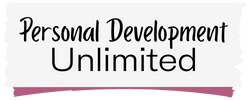Communication is the cornerstone of our daily interactions, and effective communication techniques are essential for building good relationships.
Communication techniques are vital for success in all aspects of life, including personal and professional relationships, and they play a crucial role in achieving our goals and objectives.
In this article, we will explore the power of interpersonal communication techniques and provide practical guidance on how to enhance this important skill.
Table of Contents
Understanding Communication Skills
Effective communication is a critical component of our daily lives, and it can be achieved through various skills and strategies. Communication skills are the tools that we use to interact with others, convey our thoughts and feelings, and receive feedback.
There are two primary types of communication: verbal and nonverbal. Verbal communication involves speaking and listening, whereas nonverbal communication encompasses body language, facial expressions, and tone of voice. Both are essential in conveying our intended message.
In addition to learning how to communicate, it is equally important to develop effective listening skills. Active listening involves giving our full attention to the speaker, showing empathy and understanding, and asking questions to clarify any misunderstandings.

Mastering Effective Listening Techniques
Effective communication is a two-way street, and mastering the art of active listening is just as important as expressing yourself clearly. By becoming a better listener, you can improve your relationships, build trust, and avoid misunderstandings. Here are some practical tips to help you become a more effective listener:
- Show empathy: Try to put yourself in the speaker’s shoes and see things from their perspective. This will help you understand their feelings and emotions better.
- Paraphrase: Summarize what the speaker has said in your own words to ensure you’ve understood their message correctly.
- Maintain eye contact: Make eye contact with the speaker to demonstrate that you’re engaged in the conversation and actively listening.
- Avoid interrupting: Let the speaker finish their thought before responding. Interrupting can be seen as a sign of disrespect and can hinder effective communication.
- Ask open-ended questions: Ask questions that encourage the speaker to share more about their thoughts and feelings. This can help you understand them better and build rapport.
By using these techniques, you can become a more active listener and improve your communication skills. Remember, effective communication is a key skill that can benefit all areas of your life, from personal relationships to professional success.

The Power of Nonverbal Communication
While words are important in communication, nonverbal cues can also play a significant role in getting your message across. Nonverbal communication includes body language, facial expressions, gestures, and tone of voice.
For example, crossing your arms during a conversation can signal defensiveness or disagreement, while maintaining eye contact can convey confidence and interest. Similarly, a smile can indicate warmth and friendliness, while a frown can signal disapproval or anger. Tone of voice is also critical, as it can convey emotions and attitudes that are not apparent in the words themselves.
To effectively use nonverbal communication, it is important to be aware of your own body language and facial expressions, as well as those of the person you are communicating with. By paying attention to nonverbal cues, you can better understand the emotions and attitudes behind the words, and adjust your own communication accordingly.
Developing Effective Communication Styles
Communication styles play a crucial role in how we interact with others. They can impact the tone and outcome of conversations, influencing relationships and shaping personal and professional success. Below, we explore different communication styles and provide guidance on how to develop effective approaches.
Assertive Communication Style
Assertive communication involves expressing your thoughts, feelings, and opinions in clear, confident, and respectful ways. It allows you to stand up for yourself while also respecting the views of others. To develop an assertive communication style, try the following:
- Be direct and clear in your communication
- Avoid aggressive or passive language and behavior
- Use “I” statements to express your thoughts and feelings
- Listen actively to others and try to understand their perspectives
Passive Communication Style
Passive communication involves avoiding conflict and expressing your needs and opinions in an uncertain and indirect way. It can lead to feelings of frustration and resentment. To develop a more assertive communication style, try the following:
- Practice expressing your thoughts and feelings in a clear and direct manner
- Avoid apologizing excessively or using passive language (“I’m sorry, but…”)
- Be confident in expressing your opinions and needs
- Seek feedback from others to improve your communication style
Aggressive Communication Style
Aggressive communication involves using forceful and dominating language to express your opinions and needs. It can create conflict and damage relationships. To develop a more assertive communication style, try the following:
- Avoid blaming, criticizing, or attacking others
- Use respectful language and tone
- Stay calm and composed during disagreements
- Be open to feedback and willing to compromise
By developing effective communication styles, we can enhance our interpersonal relationships, improve our ability to navigate difficult conversations, and achieve greater success in both our personal and professional lives.

Enhancing Interpersonal Communication in Business
Effective communication is critical in a business environment. It helps build strong relationships with customers, colleagues, and stakeholders, and enhances overall performance. Here are some techniques to help you enhance interpersonal communication in business:
Building Rapport
Building rapport involves creating a level of trust and understanding between two parties. This can be achieved by finding common ground, showing genuine interest in others, and actively listening. Remember to use open-ended questions and encourage others to share their thoughts and ideas.
“The single biggest problem in communication is the illusion that it has taken place.” – George Bernard Shaw
Resolving Conflicts
Conflicts are a natural part of any business environment. However, learning to resolve them effectively is essential for maintaining positive relationships. One effective technique is to focus on the issue at hand, rather than the person. Listen to the other person’s perspective, acknowledge their concerns, and seek common ground.
Delivering Persuasive Messages
Being able to deliver persuasive messages is a valuable skill in business. Some techniques to consider include using stories and examples to illustrate your point, providing evidence to support your argument, and appealing to the other person’s emotions. Remember to use language that is clear, concise, and relevant to your audience.
| Tips for Enhancing Interpersonal Communication in Business |
|---|
| Be clear and concise in your communication. |
| Take the time to actively listen to others. |
| Seek common ground when resolving conflicts. |
| Use evidence and stories to support your arguments. |
By enhancing your interpersonal communication skills in business, you can strengthen relationships, improve collaboration, and achieve greater success.

Overcoming Communication Barriers
Effective communication can be hindered by various barriers, which can make it challenging to express oneself clearly and result in misunderstandings. Here are some common communication barriers that can be overcome with the right strategies:
Cultural Differences
Cultural differences can often play a role in communication breakdowns. It’s important to be aware of cultural nuances, such as differences in nonverbal communication and language use. To overcome this barrier, take the time to learn about the culture of the person you’re communicating with, and strive to be respectful and understanding of their customs.
Language Barriers
When communicating with someone who speaks a different language, language barriers can arise. To overcome this barrier, consider using a translator or learning some basic phrases in the other person’s language to facilitate communication. It’s also important to speak clearly and avoid using complex language or idioms that may be difficult for non-native speakers to understand.
Emotional Barriers
Strong emotions can limit effective communication. When emotions are running high, it can be difficult to listen and express oneself clearly. To overcome this barrier, take a break from the conversation and allow for emotions to calm down. Additionally, practice active listening techniques such as mirroring and empathy to help the other person feel heard and understood.
Distractions
External distractions, such as background noise or interruptions, can also hinder effective communication. To overcome this barrier, find a quiet and private space to have the conversation. Additionally, turn off any electronic devices and other distractions that may divert your attention from the conversation.

Navigating Difficult Conversations
Difficult conversations can be emotionally charged and challenging to navigate, but with the right communication techniques, you can manage them effectively. Here are some tips:
Listen actively
Actively listening to the other person can help you understand their perspective and build empathy. Avoid interrupting or dismissing their concerns, and take the time to fully comprehend their point of view.
Remain calm and professional
When emotions are running high, it can be easy to become defensive or reactive. However, staying calm and professional can help defuse the situation and keep the conversation productive. Use “I” statements to express your thoughts and feelings without placing blame on the other person.
Focus on solutions
Rather than dwelling on the problem, focus on finding solutions together. Brainstorm ideas and be open to compromise. If the conversation becomes heated or unproductive, take a break and revisit the discussion when emotions have cooled.
Use constructive feedback
If feedback is necessary, frame it in a constructive and specific manner. Use examples and avoid generalizations. Be sure to provide suggestions for improvement and offer support in implementing them.
Remember, difficult conversations can be opportunities for growth and finding resolution. With effective communication techniques, you can navigate them successfully.
FAQ – Communication Techniques
Do you have questions about communication techniques? Check out some commonly asked questions and find answers to help you improve your interpersonal communication skills.
Q: How can I improve my active listening skills?
A: Effective listening involves giving the speaker your full attention and demonstrating an interest in what they are saying. Try using nonverbal cues such as nodding or maintaining eye contact, ask open-ended questions to encourage conversation, and practice paraphrasing to demonstrate active listening.
Q: What communication style is most effective?
A: The most effective communication style is typically an assertive approach, which involves expressing your thoughts and feelings clearly while also respecting the other person’s perspective. This style allows for open communication and mutual respect.
Q: How can I overcome language barriers with communication techniques?
A: When communicating with someone who speaks a different language, it can be helpful to use visual aids or gestures to convey your message. It’s also important to speak at a slower pace and avoid using complex sentences or idiomatic expressions. Consider using online translation tools or hiring an interpreter for more complex conversations.
Q: What should I do if I need to have a difficult conversation with someone?
A: When preparing for a difficult conversation, it’s important to plan what you want to say in advance and anticipate potential responses. Stay calm and respectful throughout the conversation, and actively listen to the other person’s perspective. Try to find common ground and identify potential solutions together.
Remember, effective communication is an ongoing process that requires practice and patience. With dedication and effort, you can improve your communication skills and build stronger relationships in all areas of your life.
Personal Development Unlimited is your go-to place to be You, Without Limits. We bring together personal development and self-improvement articles, books, courses and videos in one place. Find your self-growth opportunities easily.
Comments
0 comments



